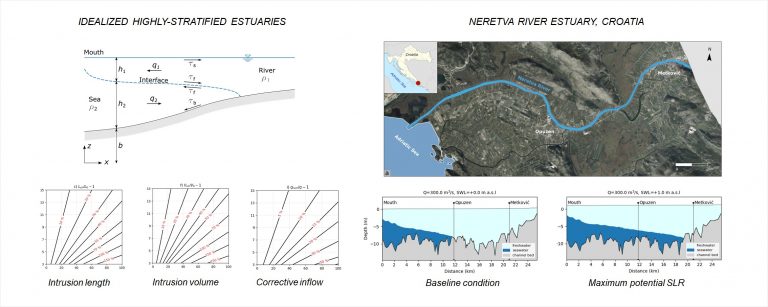
Understanding the response of estuaries to sea-level rise is crucial in developing a suitable mitigation and climate change adaptation strategy. This study investigates the impacts of rising sea levels on salinity intrusion in salt-wedge estuaries. The sea-level rise impacts are assessed in idealized estuaries using simple expressions derived from a two-layer hydraulic theory, and in the Neretva River Estuary in Croatia using a two-layer time-dependent model. The assessment is based on three indicators — the salt-wedge intrusion length, the seawater volume, and the river inflows needed to restore the baseline intrusion. The potential SLR was found to increase all three considered indicators. Theoretical analysis in idealized estuaries suggests that shallower estuaries are more sensitive to SLR. Numerical results for the Neretva River Estuary showed that SLR may increase salt-wedge intrusion length, volume, and corrective river inflow. However, the results are highly non-linear because of the channel geometry, especially for lower river inflows. A theoretical assessment of channel bed slope impacts on limiting a potential intrusion is therefore additionally discussed. This findings emphasize the need to use several different indicators when assessing SLR impacts.